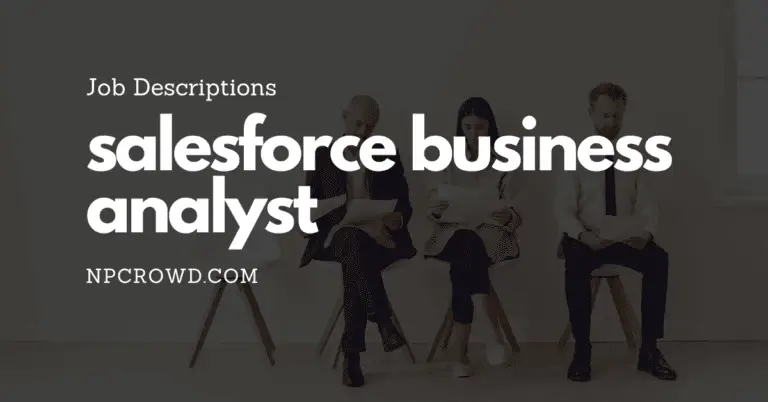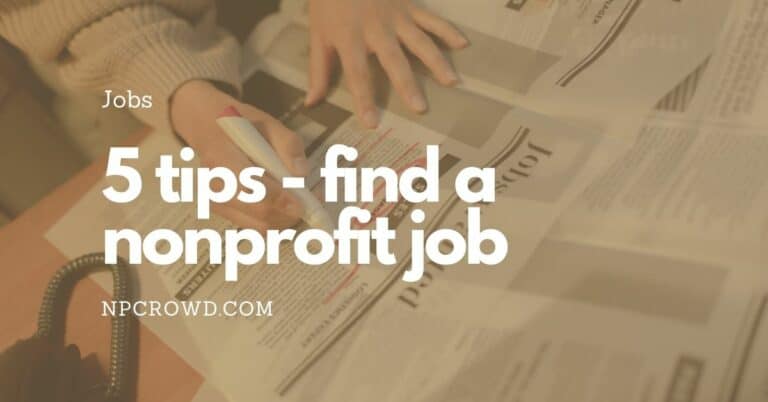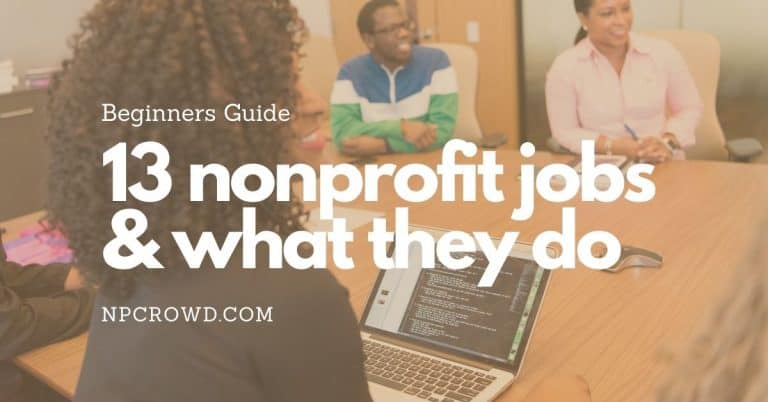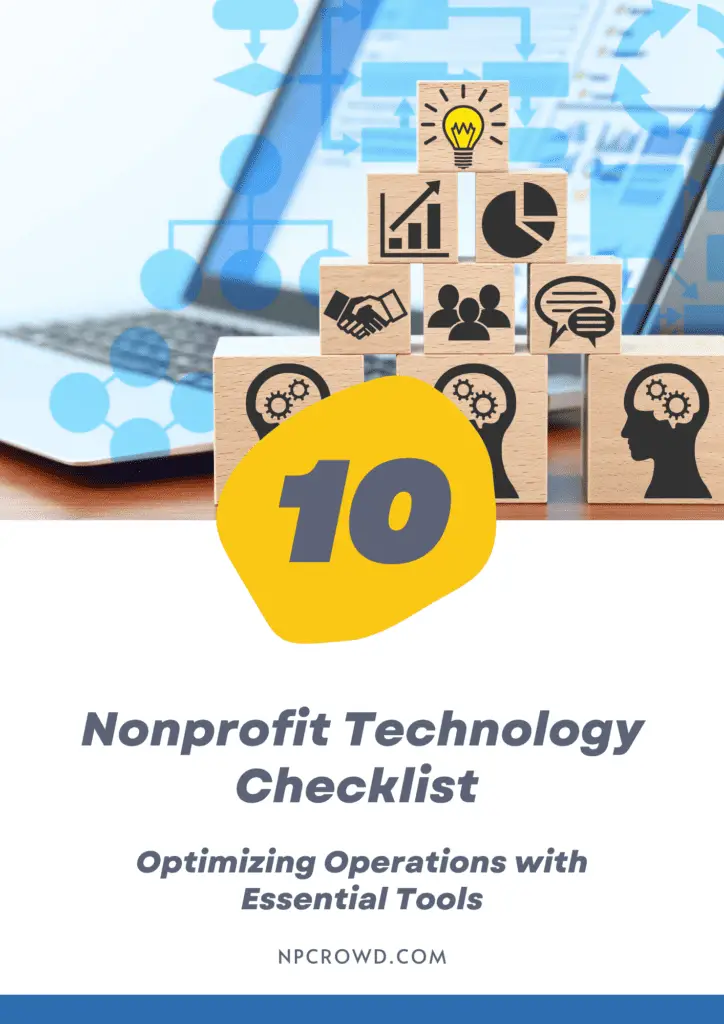A Guide to Becoming a Good Nonprofit CRM Administrator
Disclaimer: This post may contain affiliate links. These links, if used and purchases made, we may earn a small commission. These affiliate programs do not impact the recommendations we make or the resources we refer you to. Our focus is on providing you the best resources for your nonprofit journey.
No one knows their nonprofit CRM better than a good CRM administrator. It’s one of the most important jobs in any organization, and there are many different types of nonprofits out there that need a good CRM.This guide will teach you how to become a great CRM administrator for your nonprofit organization.
What is a Nonprofit CRM Administrator
A nonprofit CRM administrator is responsible for managing and monitoring the organization’s charity and fundraising activities, as well as maintaining records of donors and events.
They also play an important role in developing and implementing marketing and communication strategies for charities.
In general, a CRM administrator is responsible for a wide range of administrative tasks which may include creating, editing, managing, tracking, analyzing, and deploying charity data systems.
Why Should You Become a Nonprofit CRM Administrator?
Choosing a career as a CRM administrator can have many benefits.
For one, a nonprofit CRM administrator can save the organization money on administration costs from external, and expensive CRM consultants.
Additionally, nonprofits often lack the resources or staff to manage their own data systems so a CRM administrator can provide valuable support that can actually help increase fundraising.
Finally, as the profession of CRM administration expands to include more complex tasks such as fundraising and donation tracking, nonprofit CRM administrators have opportunities to advance their skills while still being compensated well.
When it comes to income, the average salary of a Junior Salesforce Administrator in the US is $97,350 and in the UK it is £38,150, according to the Mason Frank salary survey. For sure, this is an average and each situation and organization will be unique.
Who Makes The Best CRM Administrators
CRM Administrators need a certain type of personality to be successful.
They must be able to maintain high levels of productivity and remain organized in a fast-paced environment.
CRM Admins also need to have strong critical thinking skills, as well as the ability to develop and manage relationships with their clients and team members.
General Skills
CRM Administrators need a strong knowledge of Excel or Google Sheets, databases, and other software programs.
They should also be familiar with email marketing and automation tools like MailChimp and ConvertKit, as well as the use of social media platforms like Facebook, Twitter, and LinkedIn.
Specific Hard Skills
CRM Administrators must be able to work independently and take direction from superiors when needed.
They should also be able to stay up-to-date on technology changes, handle customer service inquiries efficiently, and keep track of project updates.
Jobs That Transition Well To CRM Administrators
When it comes to becoming a CRM administrator, many options are available that fit different personalities and skill levels.
Some career paths include working in customer service or analytical roles, marketing or advertising including metric data; or even starting your own business! CRM Administrators should generally be able to understand technology.
If you feel like you have the skills and personality necessary for this career path, start exploring options today!
How to Become a Good CRM Administrator
As a CRM administrator, you are responsible for the day-to-day operation of the CRM system. This includes managing users, creating and managing records, and configuring the system to meet the needs of your organization.
To be successful in this role, you need to have a strong understanding of how the CRM system works and how it can be used to improve your business.
You also need to be able to effectively manage users and ensure that everyone is using the system correctly.
Use Free CRM Trials and Webinars To Learn CRM Administration
Are you a recent college graduate who is looking for your first job in CRM administration? A free trial of CRM software can allow you to learn the basics of CRM administration before your first job.
Free CRM trial accounts and vendor-specific webinars can give you an overview of the features and functionality of a CRM system, and help you learn how to use the system. You can also use a free trial to learn how to set up and manage customer data.
But, you also need to understand how nonprofit fundraising generally works to help create systems and processes for a CRM that benefit the organization well.
The more you know about nonprofit fundraising and the more you can learn about potential employers, the easier it will be to manage a CRM that works for their needs.
Some of the most popular Nonprofit CRMs are: Salesforce, Microsoft Dynamics, RaisersEdge, HubSpot, Kindful, DonorPerfect, and Little Green Light.
Volunteer As A CRM Administrator
CRM administration career. Not only will you gain experience working with a CRM system, but you’ll also learn about the inner workings of a nonprofit organization.
This can be an invaluable experience that will help you when you’re looking for a job in the CRM administration field.
How to be a Good CRM Administrator
A CRM administrator is responsible for the day-to-day operation of a company’s customer relationship management system. To be a good CRM administrator, you need to be able to multitask and have strong attention to detail. You should also be able to work independently and be able to manage your time effectively.
Let’s look at a few specific recommendations.
Use the Right Tools for Your Work
CRM administrators have their work cut out for them. Not only do they need to be experts in the software, but they also need to be able to manage and coordinate a team of users. Using the right tools can make this job a little bit easier.
One of the most important tools for a CRM administrator is a good project management tool. This can help keep track of tasks and deadlines, as well as communicate with team members. Another helpful tool is a customer support ticketing system. This can help track customer issues and resolutions, as well as keep track of customer feedback.
Finally, a good administrator will also be familiar with data analysis tools.
Participate Actively In Online CRM Administrator Communities
There are many online CRM administrator communities that can help you become a great CRM administrator. These communities can provide you with valuable information and resources that can help you in your career. Additionally, participating in these communities can help you network with other CRM administrators and gain valuable experience.
For example, for the Salesforce platform, you will want to have an account and active participation in the Salesforce Trailhead Community. Having an accumulation of points and badges can be helpful for prospective employers to see.
Another great online CRM administrator community is the Microsoft Dynamics CRM Community. This community is very active and can provide you with valuable resources and information. Additionally, participating in this community can help you network with other CRM administrators and gain valuable experience.
CRM Administration Is More Than Just Tracking Data
When it comes to using CRM software, there are a few things you should keep in mind: data quality, accuracy, efficient workflow, scalability, security, and easy-to-use interface.
- Data quality/hygiene: essential for accurate tracking of events and employee records.
- Accuracy: vital for making sure data is organized correctly.
- Efficient workflows: helps manage large quantities of data quickly.
- Scalability: is important if your organization wants to grow or change its structure over time.
- Security: should be considered when implementing CRM software as it could impact system stability or access rights.
- Training: critical for CRM adoption and maximizing CRM investment to increase income.
In order to make effective use of CRM software in your organization, it’s important to understand how it works and how to apply the right tools in order to make the most out of it. By following these tips, you’ll be well on your way to becoming a good CRM administrator!
Know How To Do Things In Bulk (Import/Export/Update) To Save Time
If you’re a CRM administrator, you know that doing things in bulk can save you a lot of time. In this article, we’ll show you how to import and export updates in bulk. This will allow you to make changes to multiple records at once, instead of having to update them one at a time.
Importing and exporting data can be a huge time-saver for CRM administrators. By knowing how to do things in bulk, they can save time on routine tasks such as importing new contacts or updating customer information.
For example, a nonprofit that has 2,000 people attend a big gala could use a bulk import/export tool to quickly import customer information into their CRM. This would be much more efficient than having to manually enter each attendee’s name, email address, and phone number.
Tips To Become An Invaluable CRM Administrator In A Nonprofit Organization
In the for-profit world, having an effective CRM (customer relationship management) system is critical for success. But in the nonprofit world, it can be the difference between life and death. Going beyond the basics can make you invaluable to your organization.
Here are some suggestions to help you get started:
- Read the latest in CRM technology. It’s never too late to start
- Know your organization’s goals and where it wants to go. Plan your CRM system accordingly.
- Get the support and direction you need from your board.
- Join a nonprofit CRM user group for ideas, resources and support.
- Develop partnerships with other organizations. Sharing best practices, data and ideas can save valuable time and money.
How Many CRM Administrators Should We Have?
The number of CRM administrators you need will depend on the size of your company and the complexity of your CRM system. Generally, nonprofit CRM administrators do more than just set up and manage your CRM. They will also do reporting and analysis while some will also be responsible for some data entry components.
With that in mind, we do like the Salesforce recommended best practices (Salesforce article) in the table below:
| Number Of Users | Administration Resources |
|---|---|
| 1 – 30 Users | < 1 full-time administrator |
| 31 – 74 Users | 1+ full-time administrator |
| 75 – 149 Users | 1 senior administrator; 1 junior administrator |
| 150 – 499 Users | 1 business analyst, 2–4 administrators |
| 500 – 750 Users | 1–2 business analysts, 2–4 administrators |
| > 750 Users | Depends on a variety of factors |
Conclusion
Nonprofit CRM administrators can play an important role in the organization. By becoming well acquainted with data, analysis, and reporting, you’ll be able to make better decisions while keeping your CRM up-to-date.
Additionally, by training your non-profit staff on maximizing the use of CRM, they’ll be able to maximize the efficiency and effectiveness of their work.
However, volatility and continuous learning can be a challenge for those who wish to succeed in this field.








